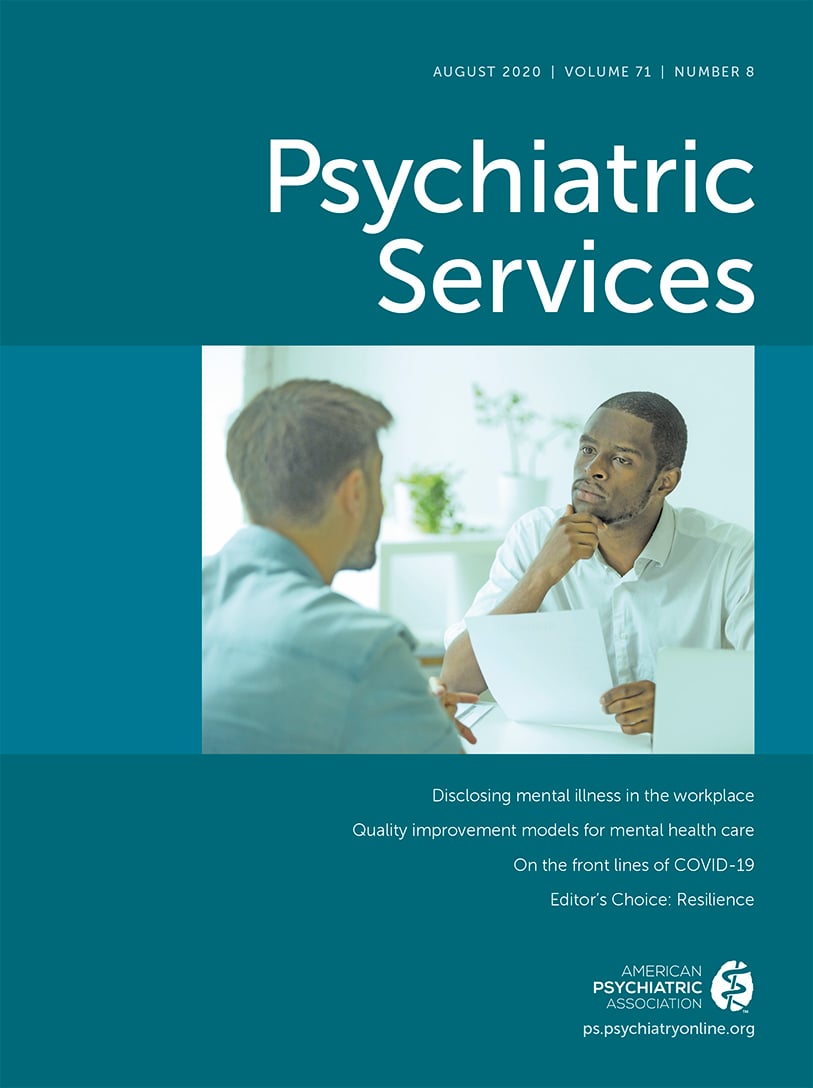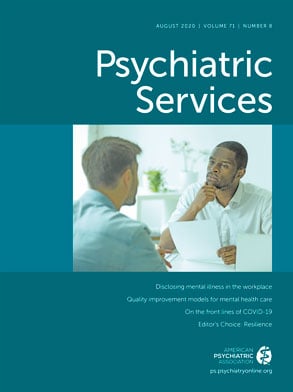We are living in both terrible and fascinating times, a period of radical flux before we enter a new era. Many things we take for granted are changing before our eyes. Much of our way of life is rapidly shifting. The day-to-day experience of how we spend our time and with whom we spend our time has already changed. Trust in our government and faith in our institutions are corroding. Our sense of safety and the security of our civilization’s collective future has been thrown into question.
If psychosis is when we break from reality, what do we call it when reality seems to break from us? When the truth we are given is shifting constantly, how can we know what is real? The order and continuity of life that we’ve always taken for granted seem to be disappearing. The ground that used to feel so rock solid underneath us is now muddy and caving in. Times of transition and flux tend to push vulnerable individuals over the edge. Now add in loss of employment, fear of a contagious and potentially deadly disease, loss of social outlets, and impending financial collapse, and we are all at that edge.
Someone very important to me had signed up for the Herculean task of trying to help his hospital prepare for COVID-19. An idealist to the core, my friend believed that his mission was to prevent any health care workers from contracting the virus. He worked tirelessly around the clock, answering calls and responding to e-mails at all hours of the day. He read all the information coming out of China, and then Italy, about what was happening. My friend helped inventory essential components of COVID-19 treatment, including ventilators and availability of negative pressure rooms. He developed workflows for which teams would treat COVID-19 patients and surge plans for when the intensive care unit (ICU) was over capacity. Throughout all of this, my friend’s top priority was obtaining sufficient and effective personal protective equipment (PPE). He recognized that this was necessary for protecting the doctors and nurses, and he was very much aware that the lives of his peers were at risk. Unfortunately, the administrators employed at levels above my friend were not so forward thinking and were still many weeks away from being able to hear this message. As nonclinicians, the top administrators presumably lacked the knowledge and ability to appreciate the risk to the health care providers. My friend’s dogged commitment to this issue was constantly being met with conflict and feedback to “stay in your lane” and “be a team player.” The situation was wearing my friend down, but the straw that broke the camel’s back was when they required him to tell the physicians and nurses that they did not need PPE to treat COVID-19 patients. The cognitive dissonance became too much, and something ruptured.
Unable to sleep, my friend became increasingly agitated and distressed to the point of apparent hypervigilance and paranoia. He believed that the administrative decisions in which he had participated would result in doctors and nurses dying and that he was to blame. My friend became convinced that he would die of COVID-19 and started isolating, locking himself in his bedroom. Days and nights were spent obsessively reading information related to COVID-19 and calling friends and family to warn them. My friend refused to physically interact with his children or other family members and became convinced that one of his children had COVID-19.
I consider this friend to be the smartest person I know and someone who deeply understands complex situations. The arguments he made were logical and based on his interpretation of real data. It seemed like perhaps he was the only person who “got it.” Why were we being told to not wear masks? How is this a reasonable request in the setting of a pandemic with a virus that is known to aerosolize? Why was the government unprepared and minimizing things? Why weren’t schools closed down? Why were health care workers without PPE when treating COVID-19 patients? Why were the health care workers who expressed their concerns about safety fired? Maybe those of us who were staying calm were the unhealthy ones. Maybe we were the fools for not appreciating the gravity of the situation. I hoped that my friend was wrong but worried that he was right. In discussions with my friend, I could feel myself getting more and more sucked in. Time seemed to dramatically slow down. My mind was oddly blank. My thoughts and feelings were strangely dampened. I wasn’t sure whether events seemed surreal or hyperreal. Time ground to a halt. A day would feel like a week. Every moment had a heightened sense of importance: the world was slowly ending, and time was running out. We were all passengers on an incredibly slow-motion train wreck, aware of what was happening but powerless to intervene. Despite everything we had done and would do, our fate was to become statistics in a history book. Out of a morbid fascination, I found myself compulsively checking COVID-19 statistics for no other reason than to confirm my fears. I was pretty sure that I had been exposed to COVID-19 on a recent trip and determined that I was likely an asymptomatic carrier. Unable to sleep for more than a few hours at a time, I found it next to impossible to focus on work or family matters. Hypnotized by the tragedy unfolding before me, nothing besides COVID-19 felt important or real enough to think about.
Despite the ongoing pandemic, my life has settled some. My friend’s high distress and insomnia have been addressed by his psychiatrist. The focus on COVID-19 has become less overt, and he is no longer hiding from his family. He is still a long way from his usual self, and the precipitating stressors aren’t going anywhere. Whenever I have pointed out the news stories that seem to validate his concerns, instead of being helpful, it seemed to just add insult to the injury. I don’t know what it means to be “normal” in a pathological situation. I don’t know what it means to be out of touch with reality in the setting of constantly conflicting and changing versions of “reality.” Maybe my friend was in touch with reality too much. He is right that the lives of health care providers have been and will continue to be lost because of insufficient PPE. And despite his best efforts, my friend could not exert the control that he so desperately needed to have. The fog of my semialtered and disconnected state slowly cleared as I reached for a sense of agency. I was powerless over the sweeping tide, but I couldn’t let that paralyze me. I could not let my fear control me. My family needed me. My patients needed me. I needed me. I directed my concerns toward fueling a sense of purpose. I focused on what I could affect. I threw myself into advocacy, sending many hundreds of e-mails to politicians and leaders. I made my elderly grandmother a care package with hand sanitizer, wipes, and gloves. I educated my family on how they can stay safe. I get my groceries delivered and make sure to tip well. I focus on gratitude and appreciating the moment. I worry greatly for our physician brothers and sisters on the front line. The stress and trauma my friend experienced pale in comparison to what our colleagues in the emergency departments and ICUs are experiencing. Unfortunately, this is a war. And it’s only the beginning.

